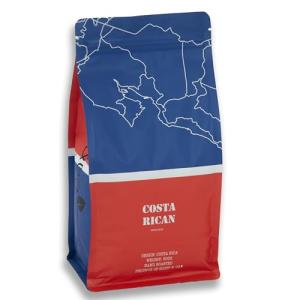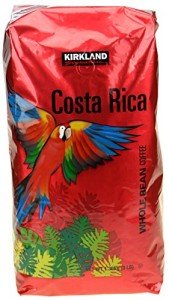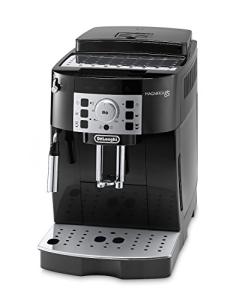Costa Rica is renowned for its breathtaking landscapes, biodiversity, and a rich culture steeped in tradition. Among its global accolades, the country stands out in the coffee world, offering exquisite varieties that cater to a connoisseur’s palate. The Costa Rica 100% Arabica Whole Bean Coffee, particularly the 227g size, epitomizes this heritage. This guide delves into the unique characteristics of Costa Rican coffee, the significance of the Arabica bean, and how to enjoy this delightful brew to its fullest.
The Allure of Costa Rican Coffee
Costa Rican coffee is like no other, known for its exquisite flavors, smooth texture, and vibrant aroma. The unique climatic conditions and the rigorous standards of quality cultivation contribute to the exceptional quality of its coffee beans. Costa Rica predominantly cultivates Arabica coffee, which is celebrated for its complex flavors, lower caffeine content, and overall superior quality compared to other bean varieties like Robusta.
Key Characteristics of Costa Rica’s Coffee Culture
-
Ideal Growing Conditions: Costa Rica’s mountainous terrain, volcanic soil, and favorable climate create the perfect environment for coffee cultivation. The elevation ranges from 1,200 to 1,800 meters above sea level, allowing Arabica beans to thrive, developing their unique flavors.
-
Strict Quality Control: The Costa Rican Coffee Institute (ICAFE) ensures that farmers adhere to strict quality standards. Only the best beans, grown at optimal elevations and harvested at peak ripeness, can be labeled as 100% Arabica.
-
Sustainable Practices: Many Costa Rican coffee farms emphasize sustainability, employing eco-friendly farming practices that preserve the rich biodiversity of the region while ensuring a high-quality product.
-
Diverse Flavor Profiles: Costa Rican coffees are celebrated for their bright acidity and complex flavors. Depending on the region where the coffee is sourced, flavors can range from fruity and floral to nutty and chocolatey.
The Arabica Bean: A Closer Look
The choice of Arabica beans distinguishes Costa Rican coffee from other varieties. Arabica beans, which comprise about 60-70% of global coffee production, are generally considered superior due to the following characteristics:
-
Flavor: Arabica beans possess a wide range of flavors, with a smooth and complex taste profile that can include notes of chocolate, fruit, and caramel.
-
Caffeine Content: Arabica beans typically contain less caffeine than their Robusta counterparts, resulting in a milder, less bitter coffee experience.
-
Growing Requirements: Arabica coffee thrives in high altitudes, cooler climates, and requires more attention during cultivation, leading to a more refined product.
The Experience of Brewing Costa Rica 100% Arabica Whole Bean Coffee
Brewing coffee is both an art and a science. To fully appreciate the exquisite flavors of Costa Rica 100% Arabica Whole Bean Coffee, one must consider various factors that influence the brewing process:
Grinding the Beans
To capture the fullest flavor experience, grinding the beans just before brewing is essential. A burr grinder is recommended to achieve a consistent grind size, which is critical for an even extraction. Here’s a quick guide:
- Coarse Grind: Ideal for French press and cold brew.
- Medium Grind: Best for drip coffee makers.
- Fine Grind: Preferred for espresso machines.
Brewing Methods
The method of brewing can significantly impact the taste of the coffee. Below are some popular brewing methods for Costa Rican coffee:
-
French Press: This method emphasizes the full-bodied nature of the coffee. Use a coarse grind and steep for about 4-5 minutes.
-
Pour-Over: Highlights the nuanced flavors. Use a medium grind, and pour hot water in a slow, circular motion.
-
Espresso: For those who enjoy a bold, concentrated flavor, a fine grind is essential. Aim for a brewing time of 25-30 seconds.
-
AeroPress: This versatile device can brew coffee that mirrors both immersion and pressure brewing. Experiment with varying grind sizes and brewing times.
-
Cold Brew: For a refreshing alternative, use a coarse grind and steep overnight in cold water for a smooth finish.
FAQs about Costa Rica 100% Arabica Whole Bean Coffee
What is the origin of Costa Rican coffee?
Costa Rican coffee originates from various regions of the country, including Central Valley, Tarrazú, and Guanacaste. Each area contributes its unique flavor profiles based on the local climate and soil conditions.
How can I ensure the freshness of the coffee?
To maintain the freshness of your 227g bag of Costa Rica Arabica coffee, store it in an airtight container in a cool, dark place. Avoid exposing the coffee to light, moisture, and air, which can expedite flavor degradation.
What is the ideal brewing temperature for coffee?
The optimal brewing temperature for coffee is between 195°F to 205°F (90°C to 96°C). Using water that’s too hot can lead to over-extraction, while too cool water won't extract enough flavor.
Can I use Costa Rican 100% Arabica coffee for espresso?
Yes, Costa Rican Arabica coffee can be used for espresso. Its complex flavor profile can create a rich and enjoyable espresso shot when brewed correctly.
Where can I purchase Costa Rica 100% Arabica Whole Bean Coffee?
This specialty coffee can be found in gourmet coffee shops, organic markets, and online retailers. Ensure you check for the seal of authenticity that indicates the coffee’s origin and quality.
The Costa Rica 100% Arabica Whole Bean Coffee (227g) represents a perfect blend of tradition, quality, and sustainability, embodying the essence of Costa Rican coffee culture. From its ideal growing conditions to the careful processing and brewing techniques, every aspect of this coffee contributes to an unparalleled experience. Whether you are a seasoned coffee lover or just beginning to explore the world of specialty coffee, this rich brew promises a journey of flavors that can transport you straight to the lush hills of Costa Rica. Indulge in this exquisite coffee and elevate your daily brewing ritual to new heights.






